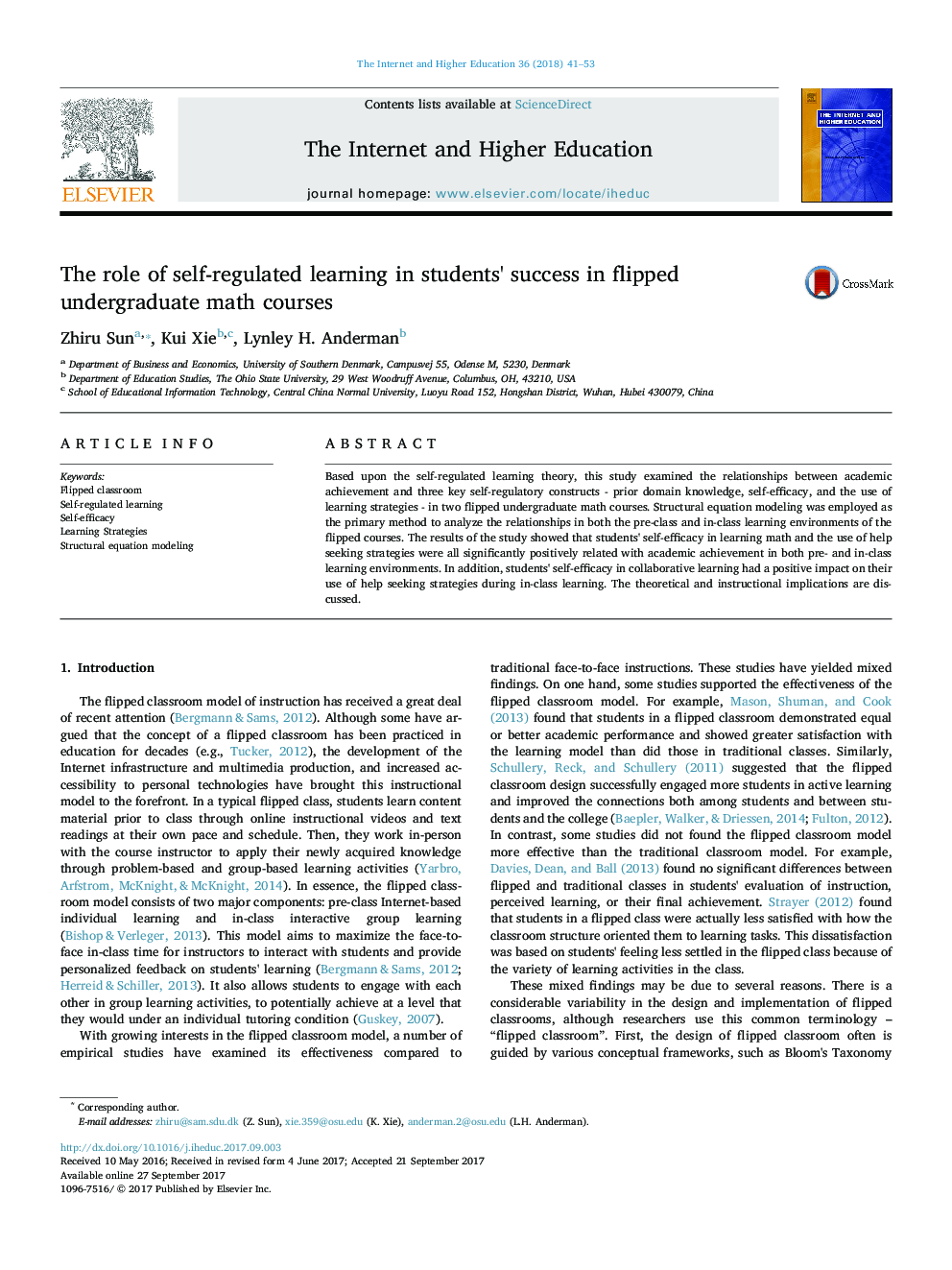| Article ID | Journal | Published Year | Pages | File Type |
|---|---|---|---|---|
| 4938793 | The Internet and Higher Education | 2018 | 13 Pages |
â¢Students with a higher level of confidence in learning math achieved higher in flipped math class.â¢Students' prior math knowledge had a direct impact on students' confidence of learning math.â¢Students who were more likely to seek help from others performed better in flipped math class.â¢Students with a higher level of confidence in collaboration were more likely to seek help from others.
Based upon the self-regulated learning theory, this study examined the relationships between academic achievement and three key self-regulatory constructs - prior domain knowledge, self-efficacy, and the use of learning strategies - in two flipped undergraduate math courses. Structural equation modeling was employed as the primary method to analyze the relationships in both the pre-class and in-class learning environments of the flipped courses. The results of the study showed that students' self-efficacy in learning math and the use of help seeking strategies were all significantly positively related with academic achievement in both pre- and in-class learning environments. In addition, students' self-efficacy in collaborative learning had a positive impact on their use of help seeking strategies during in-class learning. The theoretical and instructional implications are discussed.
